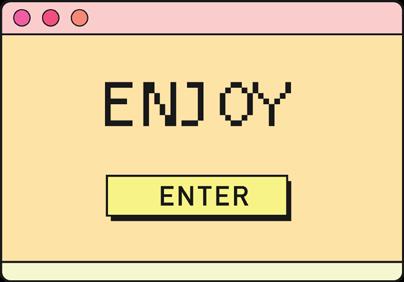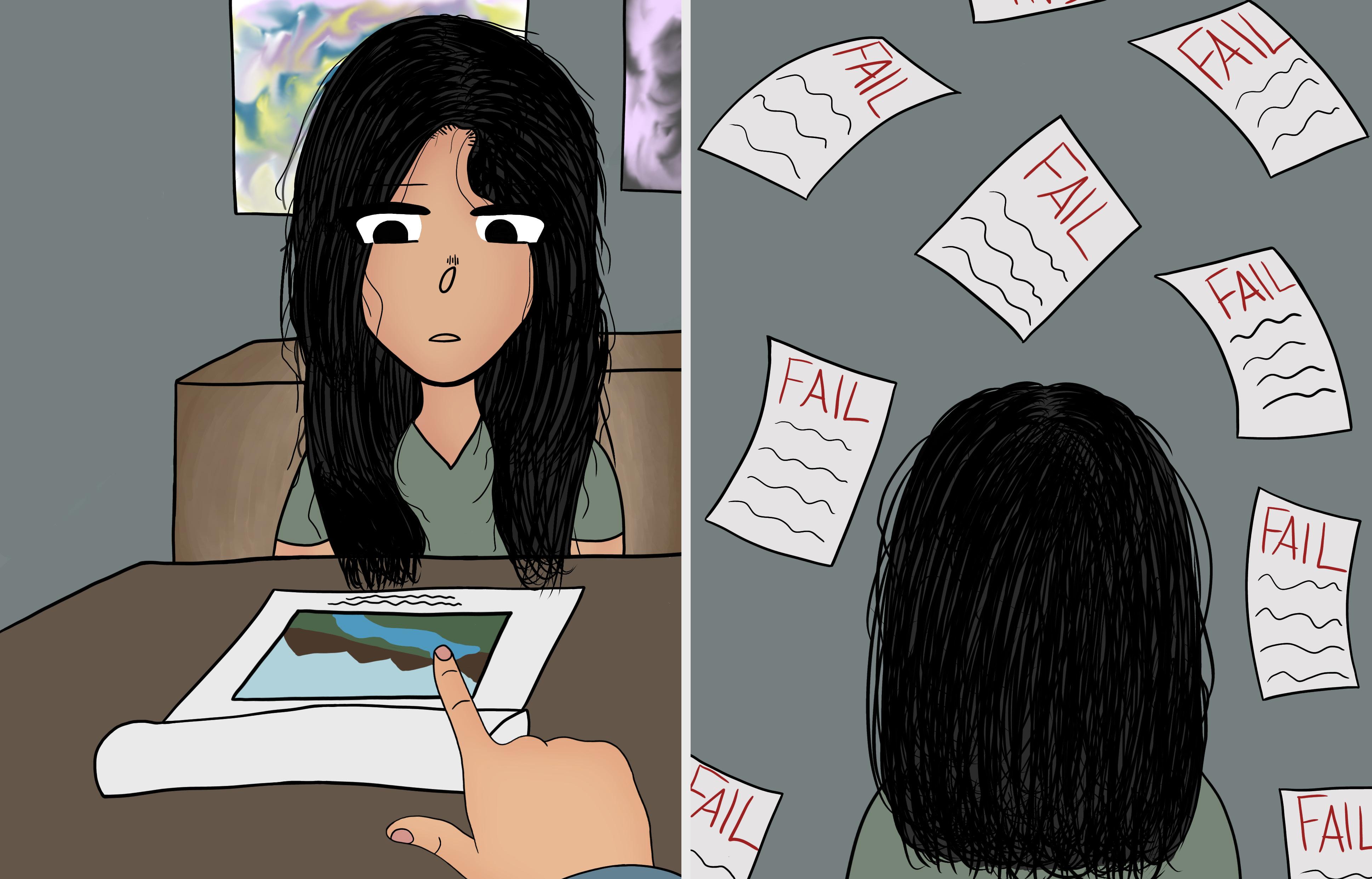














headline headline headline headline headline
The English Learner Storytelling Project is designed for English Learners in Fresno Unified School District to share their experiences as EL students in FUSD – the good and the bad. In this zine, the youth tell their stories and offer solutions to policymakers and education leaders to support EL education. To learn more, visit yli.org.
Funding for this project was provided by the Sobrato Family Foundation.
table of contents






This zine is a project of The kNOw Youth Media and the English Learner Storytelling Project. It is brought to you by:



Program Manager: Johnsen Del Rosario

Senior Program Coordinator: Julio Lopez
Program Coordinator: Daniel Gonzalez

Program Intern: Ivan Villanueva
Program Intern: Julia Prieto

Cover Art: Nancy Aguilar-Aquino | Design: Kody Stoebig

Translators: Ivan Villanueva, Julia Prieto, Sher Moua
Youth Contributors: Aileth Aguilar (Edison High), Angel Alonso Arreola (Fresno High), Angel Diaz (Fresno High), Concepcion Pacheco Cruz (McLane High Alum), Frank Yang (Roosevelt High), Mary Lee (McLane High Alum), Moises Jauregui (Edison High Alum), Nancy Aguilar-Aquino (Edison High Alum), Yaslin Carrasco (Edison High)
Special Acknowledgements: Carol PadillaShaath, Melanie Halstead, Thae Xiong
For more information, follow us on social media!
Youth Leadership Institute: @ylinstitute
The kNOw Youth Media: @theknowfresno
Assistance Not Offered
The English Language Test: A Story of Failing
Not Fluent In Two Languages
Mentee to Mentor
Grew With Language
Los Sueños
Never Enough
And
Y Ahora
Becoming A Mentor
Dual Living 02 03
04. Step By Step: An EL Journey 05. Journey of an ELD Program 05.
06.
08.
10. From
10. Growth That
12. Lenguaje De
11.
12. Now
Then 13. Antes
14.
09.
Step by Step: An EL Journey






For most of my academic years, I had hoped that I would be intelligent enough to even think the same as the rest of my classmates. However, most of the time I could barely comprehend their soft spoken words that didn’t come with my stutter.
I had hyper fixated every other aspect of myself from appearance to knowledge expecting everyone to overlook my lack of speaking English properly. I avoided long conversations and spent endless nights studying pronunciations, grammar techniques, and general questions just for mornings to arrive and pure blankness to fill my head.

Though a turbulent time in my life, it was here that I had gained a newfound appreciation and love for my education. After all, my mom had engraved the opportunity to leave a life filled with difficult hands on labor for new beginnings.
It was through small steps that my broken English got better and so came confidence. I had joined my first ever advanced placement course of geography my freshman year. I was intimidated at first glance by everything other students knew that I had never heard of, with many referencing what their parents had discussed on the dinner table two nights ago. I felt out of touch.

However, I did not let others undermine me this time around. I left behind my quietness and participated on a daily basis, often experiencing failure that just so happened to drive me further. Since then, I have stumbled around these feelings every year and overcame them. I have joined my school’s peer mentoring club to help English language learners and actively do tutoring, seeking to ease others going through the same struggles that I once faced. Granted the way I think and act is now something I can say I own.
by Yaslin Carrasco
Journey of an ELD Program

I was born in the United States, which makes me a US born citizen. I moved from California to Tijuana at the age of 4 and spent part of my childhood in Mexico. I began school in Tijuana until the second grade, and at the age of 9, I moved back to California with Mexican culture and customs.
Since I did not speak the English language and my mom was only fluent in Spanish, I was put in the ELD program. I was put in a class that teaches both 2nd and 3rd grade. I had a lot of help from teachers, staff, and students with the assignments. Depending on the subjects, I was doing second grade assignments or third grade assignments. I had to study the English language and take the same exams to get out of the ELD Program.
by Moises Jauregui

Assistance not offered


Growing up as an English learner, I didn’t get much support in school. My elementary school was probably underfunded and didn’t have enough money for English Learner programs. I had to learn most things on my own.Each English learner in primary school completed this state learner exam to determine whether or not we knew English. Throughout primary and middle school, I was unable to pass the test, and my scores were either low or not met. The test wasn’t the issue. The issue: I wasn’t offered assistance.
The only time the school assisted me was when they switched me to a different classroom and gave me more English classes. However, it was unproductive. My parents offered me a tutor because I was failing to learn English, not because the school stated I needed one. It was stressful failing the EL state test again and again until eighth grade. A journey I completed on my own.
Looking back on the test, it wasn’t really that difficult. If I had the option to participate in a program to improve my English or received further assistance, I imagine I would have passed the test instead of constantly failing. Several people have had similar experiences without EL programs and had to learn English on their own. Schools should provide more EL programs for students who, like me, struggled with English. It would have been more beneficial than providing students with more English classes and not getting the help they truly needed.
by Aileth Aguilar
English spanish hmong Take our English Learner survey by scanning one of these codes!
05 04





The English Language Test: A Story of Failing 06 07
Illustration by Aileth Aguilar
Not Fluent In Two Languages
Three languages are spoken in my family home with Spanish and English being the main ones. I’m not confident in labeling myself as “fluent” in either language, but I know enough to communicate fine on my own.

I’m great at listening and fine at speaking English but still struggle in understanding some things and writing regarding grammar and punctuation. Grammar sites and looking things up have helped me correct my writing and spelling.






I struggle the most with Spanish, which frustrates me since it is my first language. Helping translate and communicate for my parents helped me learn more Spanish but it wasn’t until I started taking Spanish classes in high school did I learn a bit more.
I struggle with reading and writing, but I can speak fairly well. I’ve had to look things up and get help from my parents when it comes to Spanish, but I’m glad I can at least communicate well enough in both languages, even though I do mess up at times.

Throughout my life, I have always been told how I still need to learn more about the languages I speak. I know I won’t be “fluent” enough for some people or speak like those who live in the countries that have it as their main language.
Now that I’m older, I wished I was given an option to learn both languages instead of taking a test on my English and then once I passed, getting put into Englishonly classes for the rest of my education.
Since I graduated high school, if I want to learn more about languages, I have to do it on my own.
Giving English Learners the option to learn English and their native language would be great. Doing a checkin or giving a reminder about options the school has throughout a student’s education to see if they’d like to change to classes that teach both English and their native language would also be great to have.
 by Nancy Aguilar-Aquino
by Nancy Aguilar-Aquino
Dual Living 09 08
Illustration by Moises Jauregui
Illustration by Frank Yang
From Mentee to Mentor
As a student, I had a lot of support from school and home to become successful. As an ELD student, I had to study twice as much to destroy the language barrier. I always had the support from my peers that were able to speak both English and Spanish to help me translate the assignments. My teachers were also very supportive and open-minded when it came to me, and eventually, I was able to get out of the ELD program.

When I finally attended high school, a teacher reached out to me and asked me to work with her in helping Spanish speaking students that had just arrived from Southern countries to the United States. I was so happy to help because these students are going through a similar path that I went through.
This program called Peer Mentoring really helped me with becoming a mentor and helping students. Now I was able to provide that helping hand that these students need in order to accomplish their goal which was learning English.
It was my pleasure to help these students that have the same passion to learn as I did when I arrived back in California. When I introduce myself, I always explain to the students that I went through a similar situation and that helps me support them and be more open-minded when I see a student struggling.
Never Enough
by Moises Jauregui


Growth That Grew With Language





 by Yaslin Carrasco
by Yaslin Carrasco
Everything was once words and sounds, I endured glances and stares every time I spoke up, But amid it all I held my head up high and continued with a firm tone, Everything was once a blur to me, I grasped onto complicated vocab words that filled my head, In all my efforts I couldn’t find solace, Everything was once a cycle of contemplation, Had I truly said the correct thing four weeks ago, In it all I had suppressed all my intelligence down to bubbles of words, Everything was once left in the past, I have clarity and vitality for who I am, I am now enough to stand my ground with two languages at hand
by Nancy Aguilar-Aquino
10 11
lenguaje de los suenos
Antes:











Antes y Ahora
Then

Once upon a time, a boy named Angel Michelle was born in Mexico and was interested in learning English and learning about new cultures. That is why one of his dreams was to learn English and travel the world, specifically in the United States. He specifically wanted to travel to the U.S. because it had one of the happiest places on earth called Disneyland. All the people said that Disneyland was a place full of magic, games, colors, and music, which was all Angel wanted. He could communicate with the people there, sing to them at the top of his lungs, and convey the feelings those song lyrics gave him. So one day, he decided to do something to learn English by translating song lyrics and watching his favorite shows repeatedly in English. But there was an impediment that did not let him advance in his learning of English. His high school teachers, who only repeated the same subject of English material, prevented him from learning different aspects of the English language. But then something unexpected happened to Angel. Out of nowhere, he got free tickets to fulfill one of his big dreams: to travel to the United States and be able to practice English. Finally, after so many years of practicing on his own there, he had the opportunity to enter high school and thus learn more English and practice it every day and make new friends!
Había una vez, un niño llamado Angel Michelle nació en México e interesado en aprender inglés y conocer nuevas culturas. Por eso uno de sus sueños era aprender inglés y viajar por el mundo, concretamente en Estados Unidos. Específicamente quería viajar a los EE. UU. porque tenía uno de los lugares más felices del mundo llamado Disneylandia. Todo el mundo decía que Disneylandia era un lugar lleno de magia, juegos, colores y música, que era todo lo que Ángel deseaba. Podía comunicarse con la gente allí, cantarles a todo pulmón y transmitir la sensación que le daban las letras de esas canciones. Entonces, un día, decidió hacer algo para aprender inglés traduciendo letras de canciones y viendo sus programas favoritos repetidamente en inglés. Pero había un impedimento que no le dejaba avanzar en su aprendizaje del inglés/ Sus profesores de secundaria, que solo repetían y repetían la misma materia de inglés, le impedían aprender distintos aspectos del idioma inglés. Pero entonces algo inesperado le sucedió a Ángel. De la nada, consiguió boletos gratis para cumplir uno de sus grandes sueños de viajar a Estados Unidos para poder practicar inglés.


Finalmente, después de tantos años de practicar solo allí, tuvo la oportunidad de ingresar a la escuela secundaria y así aprender más inglés y practicarlo todos los días y hacer nuevos amigos.

Ahora:


Casi un año y medio después de que Ángel llegara a California y después de aprender música nueva en inglés e inglés en general junto con aspectos de la cultura; creyó gracias a este viaje inesperado de México a Estados Unidos, había crecido física y mentalmente pero siempre con la misma inquietud de conocer el mundo y viajar por él gracias al nuevo idioma que aprendió y está aprendiendo cuantas puertas se le abrirán ante él gracias a su ilusión y ganas de superarse y ser cada día mejor persona.
and now
Almost a year and a half after Angel arrived in California and learned new music in English and English in general along with aspects of culture. He believed, thanks to this unexpected trip from Mexico to the United States, that he had grown physically and mentally but always with the same desire to know the world and travel around it thanks to the new language that he learned. Learning how to speak English opened many doors before him thanks to his enthusiasm and desire to improve himself and be a better person every day.
by Angel Michelle
13 12
becoming A Mentor
name is Mary Maivnkauj Lee. I am Hmong.
The reason why I joined the English Learner Storytelling summer program this year was because I wanted to put out the experiences I learned from working as a mentor and find the pros and cons of ELD (English Language Development) in the school district.
I worked as a peer mentor in the ELD program for three years during high school. I started off as a sophomore and ended as a senior. My experience was a bumpy road; I didn’t think much about working or gaining any experiences. After being a peer mentor for three years, I gained a lot of experiences and met a lot of new people. It was an easy job, just a lot of talking and socializing, which I am not good at, but I did it and learned what it was like to be a mentor.
In 2019, I was a sophomore. I became a peer mentor because I got chosen by the person who was recruiting students to work in the ELD program. I was chosen because of my grades. My older sister, who was a junior, also wanted to work as a peer mentor with me, so we talked to the recruiting person. He allowed her to join since she was an A+ student.
The first time being a mentor was not bad. Our supervisor just gave us long talks. We didn’t get to choose who our mentees were but it was okay because I didn’t mind who was my mentee. Working in the program, both mentor and mentee had a good understanding of each other, from their personality to their behavior. We had a few field trips that were fun.
In the year 2020, I was a junior. They didn’t ask or recruit new students to become mentors since it was the pandemic. We had a student leader who was in charge of communicating with us, and the recruiter asked him to ask us who is still interested in the job. My sister and I continued as mentors.
Being a mentor during the pandemic wasn’t a good position for me and my sister. We had a hard time moving to online learning; our grades dropped, and it was very bad. Especially for me. I had a difficult time focusing on school work and assignments. As mentors during the pandemic, my sister and I couldn’t really meet up with our supervisor and other mentor meetings. We did try to catch up, but we couldn’t go to the meetings (we had a horrible record). And since we did not show up to most of the meetings, my sister and I did not know if they were meeting with the mentees or not. We struggled.
Eventually, schools reopened, and we were going back in person. Going back in person was good for me because I could focus on school work and assignments again; my grades were back to normal. Even after the difficult year online, I knew I still wanted to work for the ELD program. I went to talk to the recruiter and asked if I could still be part of the mentor program my senior year.
The recruiting person agreed if I kept my grades up. It was a hard task though. When a family member tested positive for COVID or was just sick, we had to quarantine. My family always had someone that was sick with a fever, cough, or allergies. Even though it was not COVID, I had to quarantine three different times and my grades slipped. I tried to bring them back up when I got back from quarantine.
Because I quarantined three times, I did miss some of the mentor meetings, but it wasn’t as much as I missed during virtual schooling. Working as a mentor my senior years was actually better than my first two years that I worked for this program. This year, the program allowed other nationalities to join, to my surprise. At first it was just the Hmong mentors and mentees, which was okay, but it was really nice to have other cultures involved this time. We got to interact and spend time with our mentees, and we got to go on more trips. Despite having a great time in the program, I also felt like the program could have offered more.
There wasn’t much learning English or spelling words or reading. It was more of getting to know each other, helping one another, and giving advice. I would have loved to teach my mentees the same way a teacher would but since I was just their mentor, I couldn’t put much progress into it because of the time given and the work we are assigned to do. As mentors and mentees, both our schedules made it hard for us to meet on our own time. As a mentor, I wished I could have helped my mentees more with their academics, and helped them understand full sentences in English. Due to the lack of time, I failed to do that and I’m very disappointed in myself.
It was disrespectful how the supervisors and teachers yelled at the mentors to tell their mentees to only speak English. From what I was taught, you do not learn when you’re getting yelled at and being told to speak a language they’re only beginners at. What needs to be changed in the ELD programs:
1. Schedules: Have a schedule for the mentors and mentees, not just the supervisor and teacher
2. Plans: Make a plan of what you are going to do before you even do it
3. Mentors: Remember to ask mentors about what they want to do to help and teach their mentees
4. Mentees: Take a moment to understand the mentees as the supervisor/teacher should know what they actually need
5. No Long Speech: Have a final draft of what you want to tell the mentors and mentee instead of talking nonsense
6. Activity/Interaction: Actually put the activity to use like group projects or presentations
7. Communication: Communicate with the mentors and mentees for information needed to be known
8. Fun to Learn: Make the program fun to make it easier to learn


 by Mary Maivnkauj Lee
My
by Mary Maivnkauj Lee
My
14





theknowfresno.org













































 by Nancy Aguilar-Aquino
by Nancy Aguilar-Aquino




















